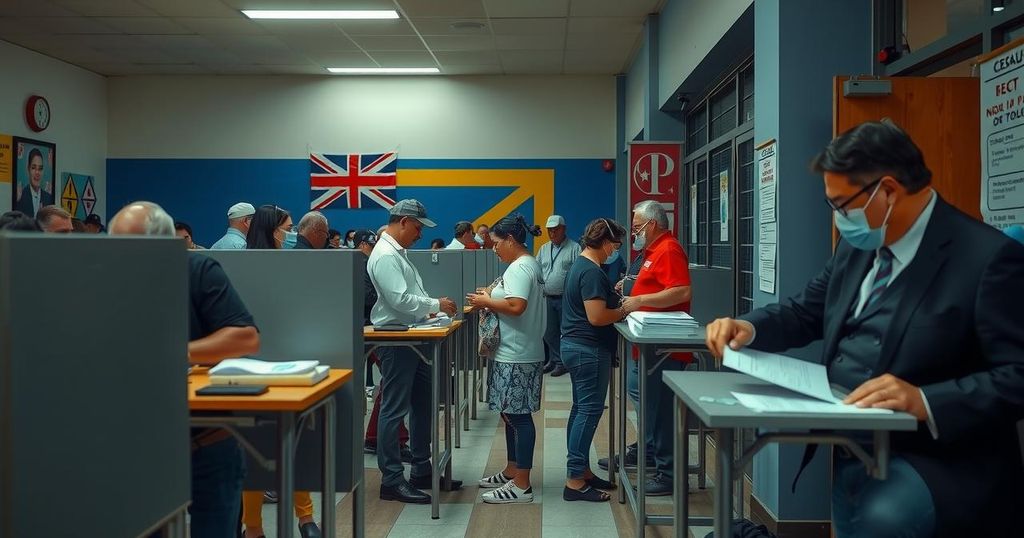Uruguay’s Presidential Runoff: A Test of Voter Sentiment in Challenging Times

Uruguay is set to hold a closely contested presidential runoff on November 24, featuring center-left candidate Yamandu Orsi against conservative Alvaro Delgado. Opinion polls forecast a tight race, possibly decided by less than 25,000 votes. With a history of moderate politics, the election will reflect voter sentiment amid economic challenges.
On November 24, voters in Uruguay will engage in a closely contested presidential runoff between moderate candidates as part of a significant electoral cycle. The election sees center-left contender Yamandu Orsi, representing the Broad Front, facing off against conservative candidate Alvaro Delgado from the National Party, who has secured support from the Colorado Party. Opinion polls indicate that the outcome may hinge on fewer than 25,000 votes, highlighting the competitive nature of this runoff.
Uruguay, with a population of 3.4 million, showcases a political landscape that eschews the more divisive left-right conflicts seen in neighboring countries like Argentina and Brazil. Instead, overlapping ideologies contribute to a more cohesive political atmosphere. Polling stations will open at 8 a.m. local time, with preliminary results anticipated by 9:30 p.m.
In the first round, Orsi garnered 43.9 percent of the vote, while Delgado received 26.8 percent. The support of the Colorado Party effectively bolsters Delgado’s position, mirroring the electoral alliance seen in the 2019 election. Orsi has reassured voters of a measured policy approach, while Delgado emphasizes continuity, urging voters to “re-elect a good government” amidst the popularity of outgoing President Lacalle Pou, who is ineligible for re-election.
Neither candidate has secured an absolute majority in Congress, complicating governance moving forward. With approximately 8 percent of voters in the first round opting for smaller, unaligned parties, both candidates aim to capture these votes along with those who abstained. Polling indicates that public uncertainty remains, with discontent over rising inflation and living costs prompting speculation about electoral outcomes and trends favoring incumbent parties. A stable economic context may favor Delgado, as analysts suggest, “There are few indications that voters are clamoring for significant political change.”
The upcoming presidential election in Uruguay marks a significant event after a year filled with various electoral contests in South America. The South American nation is recognized for its stability, liberal policies, including the legalization of marijuana, and its relatively moderate political scene. The runoff election is poised to determine the future leadership amidst unique challenges such as inflation and the evolving voter expectations as seen in broader global trends.
In conclusion, Uruguay’s presidential runoff on November 24 presents a pivotal moment for the political future of the nation. The election’s narrow margins reflect a competitive environment, with both candidates vying for the support of undecided voters. The results will not only influence domestic policy but may also signal broader shifts in voter sentiment across the region. As the electorate navigates complex socioeconomic issues, the outcome holds critical implications for Uruguayan governance moving forward.
Original Source: www.arabnews.com







